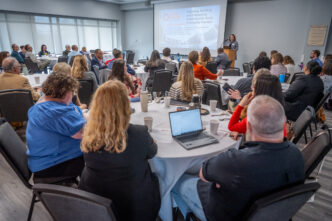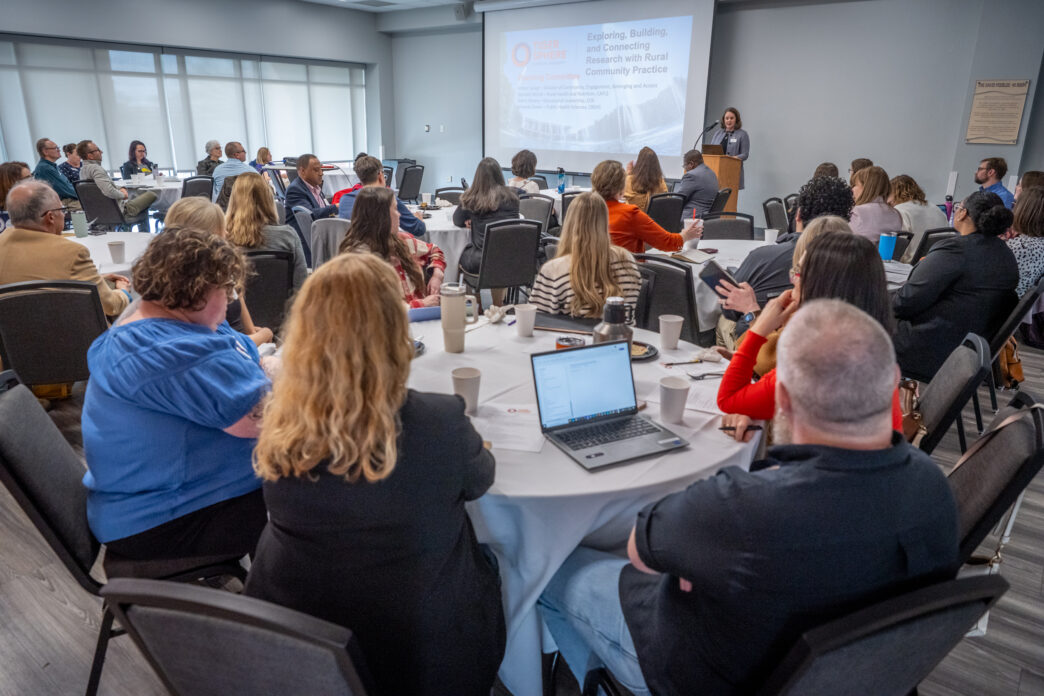I recently was invited to engage in a new organization of professionals committed to advancing well-being for the populations they serve. This cross-industry group of well-being executives advance health, well-being, hope and human flourishing as a strategic imperative for organizational success.
For me, the experience was a breath of fresh air — to be connected to high-performing colleagues who speak the same language, share similar challenges and remain steadfast in the belief that what we do as well-being leaders matters deeply. As chief well-being officers, we serve as the conduit for the “voice of the people,” ensuring well-being is represented at the tables where decisions are made. Jen Fisher, founder of the Collective, is a fierce advocate of hope as a strategy. If we think about the difference between hopeless organizations and hopeful organizations as a part of their functioning, we begin to see how hope drives well-being.
I have always believed well-being is as vital a measure of organizational health as financial viability, customer satisfaction and mission-driven outcomes. It’s not a “nice to have”; it’s a strategic imperative that shapes the way people show up, connect, create and thrive. That’s why I have high standards for what we are doing — and where we need to go. As one colleague put it, “We’ve come a long way, but we’ve got a long way to go.” That sentiment captures where we are at Clemson right now: proud of our progress, clear-eyed about our challenges and deeply committed to moving forward with purpose.
That sense of both humility and momentum was affirmed recently when Clemson University received an honorable mention for the 2025 Carolyn C. Mattingly Award for Mental Health in the Workplace, administered by the Johns Hopkins Bloomberg School of Public Health. Now, before anyone assumes this is just another award for the sake of optics, it’s important to understand the context. This recognition was not something we purchased or pursued for publicity. Instead, a dedicated group within the Clemson Well-Being Council chose to submit an application to see how our work measured up to evidence-based best practices across the nation.
To be candid, we didn’t expect to place. We were looking for feedback from an impartial team of reviewers who could help us see both our strengths and opportunities. The fact we received an honorable mention is both validating and energizing — it shows the foundational work we’ve done is positioning Clemson as a university that takes well-being seriously as part of our institutional strategy.
The reviewers recognized several promising efforts: the establishment of a chief well-being officer role; the creation of the Clemson Well-Being Council to bring together leaders from across campus; the development of Wellness Ambassadors to scale and scope well-being down to the unit level; the addition of well-being training to Tiger Training; and a communication strategy that has already reached more than 5,000 readers — helping to create a common language of well-being across our campus community.
These are not small milestones. Each represents hundreds of hours of collaboration, experimentation and persistence by teams who care deeply about building a culture where people feel seen, supported and valued.
At the same time, we know the work is far from done. The feedback from Johns Hopkins was clear: we must develop a more comprehensive assessment strategy and metrics to demonstrate measurable outcomes. Our Struggle Well program, which helps build personal and organizational resilience, was identified as a promising practice — one we can continue to strengthen and scale. The reviewers also encouraged us to formalize our efforts through a well-being policy framework, something we’ve already begun to explore.
So what does all this mean for Clemson? It means we’re on the right path. The work we’re doing is not only noticed, but respected by national leaders in mental health and organizational wellness. And we will keep pressing forward, guided by both data and hope.
As we prepare for our 2026 Clemson Well-Being Council strategic retreat, we’ll take these recommendations back to refine and elevate Elevate Well-Being, ensuring it continues to shape our culture in alignment with Clemson’s broader institutional goals.
At its core, this work isn’t about metrics or recognition — it’s about people. It’s about hope. It’s about believing that if we listen, if we care, if we act together, we can make tomorrow better than today. Thriving doesn’t mean everything is perfect. It means we are willing to keep showing up for ourselves and one another, even when it’s hard.
That is what it means to be a well-being-informed community: resilient, growing and grounded in the shared belief change is possible — one hopeful step at a time. Hope is not passive. It’s the quiet conviction change is possible — and the courage to take the next step toward it. I hope you’ll join me in the changes that are yet to come.








